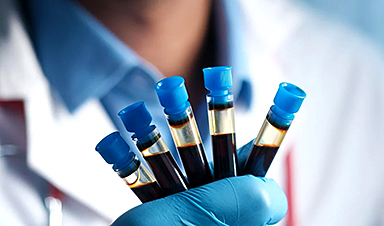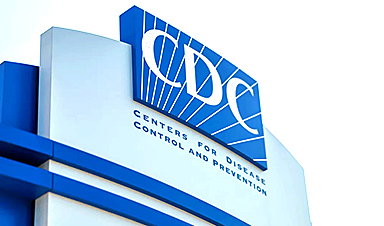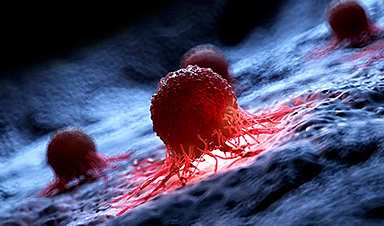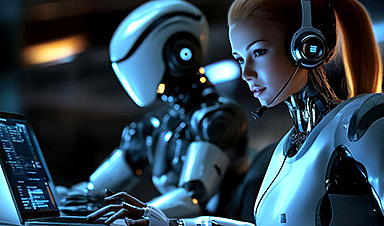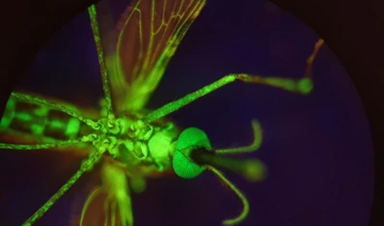In a study published in the journal Classical and Quantum Gravity, Dr. Richard Lieu, a physics professor at The University of Alabama in Huntsville (UAH), which is a part of The University of Alabama System, suggests that the universe was formed on the steps of multiple singularities rather than the Big Bang alone to explain the universe’s expansion.
The new model does not require dark matter or dark energy to explain the expansion of the cosmos or the formation of structures like galaxies.
The researcher’s work expands on an earlier model that hypothesized gravity could persist without mass.
This new paper proposes an improved version of the earlier model, which is also radically different. The new model can account for both structure formation and stability, and the key observational properties of the expansion of the universe at large, by enlisting density singularities in time that uniformly affect all space to replace conventional dark matter and dark energy.
Dr. Richard Lieu, Professor, The University of Alabama in Huntsville
Dr. Lieu added, “Sir Fred Hoyle opposed Big Bang cosmology and postulated a ‘steady state’ model of the universe in which matter and energy were constantly being created as the universe expands. But that hypothesis violates the law of mass-energy conservation. In the current theory, the conjecture is for matter and energy to appear and disappear in sudden bursts and, interestingly enough, there is no violation of conservation laws.”
He stated, “These singularities are unobservable because they occur rarely in time and are unresolvedly fast, and that could be the reason why dark matter and dark energy have not been found. The origin of these temporal singularities is unknown – safe to say that the same is true of the moment of the Big Bang itself.”
These singularities in space, instead of dark matter, generate “negative pressure,” a type of energy density similar to dark energy that has a repulsive gravitational impact, forcing the universe to expand at an accelerated rate.
“An example is the negative pressure exerted by a magnetic field along a field line. Einstein also postulated negative pressure in his 1917 paper on the Cosmological Constant. When positive mass-energy density is combined with negative pressure, there are some restrictions which ensure the mass-energy density remains positive with respect to any uniformly moving observer, so the negative density assumption is avoided in the new model,” Dr. Lieu noted.
The title of Lieu’s latest study, Are dark matter and dark energy omnipresent?, suggests the researcher’s ultimate conclusions.
He stated, “They are not omnipresent – meaning, not present at all times. They only appear in brief instances during which the matter and energy do fill the entire universe uniformly, apart from random spatial density variations which grow to form bound structures like galaxies. In between which they are not to be found anywhere. The only difference between this work and the standard model is that the temporal singularity occurred only once in the latter, but more than once in the former.”
Looking ahead, Lieu believes the next step in confirming his model of the universe will be observations made with earthbound instruments rather than something like the James Webb Space Telescope.
The researcher noted, “The best way to look for the proposed effect is actually to use a large ground-based telescope – like the Keck Observatory [Waimea, Hawaii], or the Isaac Newton Group of Telescopes in La Palma, Spain – to perform deep field observations, the data of which would be ‘sliced’ according to redshift. Given sufficient redshift (or, equivalently, time) resolution effected by the redshift slicing, one might just find that the Hubble diagram exhibits jumps in the redshift distance relation, which would be very revealing.”
Journal Reference:
Lieu, R. (2025) Are dark matter and dark energy omnipresent? Classical and Quantum Gravity. doi.org/10.1088/1361-6382/adbed1
News
Psychologists explore ethical issues associated with human-AI relationships
It's becoming increasingly commonplace for people to develop intimate, long-term relationships with artificial intelligence (AI) technologies. At their extreme, people have "married" their AI companions in non-legally binding ceremonies, and at least two people [...]
When You Lose Weight, Where Does It Actually Go?
Most health professionals lack a clear understanding of how body fat is lost, often subscribing to misconceptions like fat converting to energy or muscle. The truth is, fat is actually broken down into carbon [...]
How Everyday Plastics Quietly Turn Into DNA-Damaging Nanoparticles
The same unique structure that makes plastic so versatile also makes it susceptible to breaking down into harmful micro- and nanoscale particles. The world is saturated with trillions of microscopic and nanoscopic plastic particles, some smaller [...]
AI Outperforms Physicians in Real-World Urgent Care Decisions, Study Finds
The study, conducted at the virtual urgent care clinic Cedars-Sinai Connect in LA, compared recommendations given in about 500 visits of adult patients with relatively common symptoms – respiratory, urinary, eye, vaginal and dental. [...]
Challenging the Big Bang: A Multi-Singularity Origin for the Universe
In a study published in the journal Classical and Quantum Gravity, Dr. Richard Lieu, a physics professor at The University of Alabama in Huntsville (UAH), which is a part of The University of Alabama System, suggests that [...]
New drug restores vision by regenerating retinal nerves
Vision is one of the most crucial human senses, yet over 300 million people worldwide are at risk of vision loss due to various retinal diseases. While recent advancements in retinal disease treatments have [...]
Shingles vaccine cuts dementia risk by 20%, new study shows
A shingles shot may do more than prevent rash — it could help shield the aging brain from dementia, according to a landmark study using real-world data from the UK. A routine vaccine could [...]
AI Predicts Sudden Cardiac Arrest Days Before It Strikes
AI can now predict deadly heart arrhythmias up to two weeks in advance, potentially transforming cardiac care. Artificial intelligence could play a key role in preventing many cases of sudden cardiac death, according to [...]
NanoApps Medical is a Top 20 Feedspot Nanotech Blog
There is an ocean of Nanotechnology news published every day. Feedspot saves us a lot of time and we recommend it. We have been using it since 2018. Feedspot is a freemium online RSS [...]
This Startup Says It Can Clean Your Blood of Microplastics
This is a non-exhaustive list of places microplastics have been found: Mount Everest, the Mariana Trench, Antarctic snow, clouds, plankton, turtles, whales, cattle, birds, tap water, beer, salt, human placentas, semen, breast milk, feces, testicles, [...]
New Blood Test Detects Alzheimer’s and Tracks Its Progression With 92% Accuracy
The new test could help identify which patients are most likely to benefit from new Alzheimer’s drugs. A newly developed blood test for Alzheimer’s disease not only helps confirm the presence of the condition but also [...]
The CDC buried a measles forecast that stressed the need for vaccinations
This story was originally published on ProPublica, a nonprofit newsroom that investigates abuses of power. Sign up to receive our biggest stories as soon as they’re published. ProPublica — Leaders at the Centers for Disease Control and Prevention [...]
Light-Driven Plasmonic Microrobots for Nanoparticle Manipulation
A recent study published in Nature Communications presents a new microrobotic platform designed to improve the precision and versatility of nanoparticle manipulation using light. Led by Jin Qin and colleagues, the research addresses limitations in traditional [...]
Cancer’s “Master Switch” Blocked for Good in Landmark Study
Researchers discovered peptides that permanently block a key cancer protein once thought untreatable, using a new screening method to test their effectiveness inside cells. For the first time, scientists have identified promising drug candidates [...]
AI self-cloning claims: A new frontier or a looming threat?
Chinese scientists claim that some AI models can replicate themselves and protect against shutdown. Has artificial intelligence crossed the so-called red line? Chinese researchers have published two reports on arXiv claiming that some artificial [...]
New Drug Turns Human Blood Into Mosquito-Killing Weapon
Nitisinone, a drug for rare diseases, kills mosquitoes when present in human blood and may become a new tool to fight malaria, offering longer-lasting, environmentally safer effects than ivermectin. Controlling mosquito populations is a [...]










